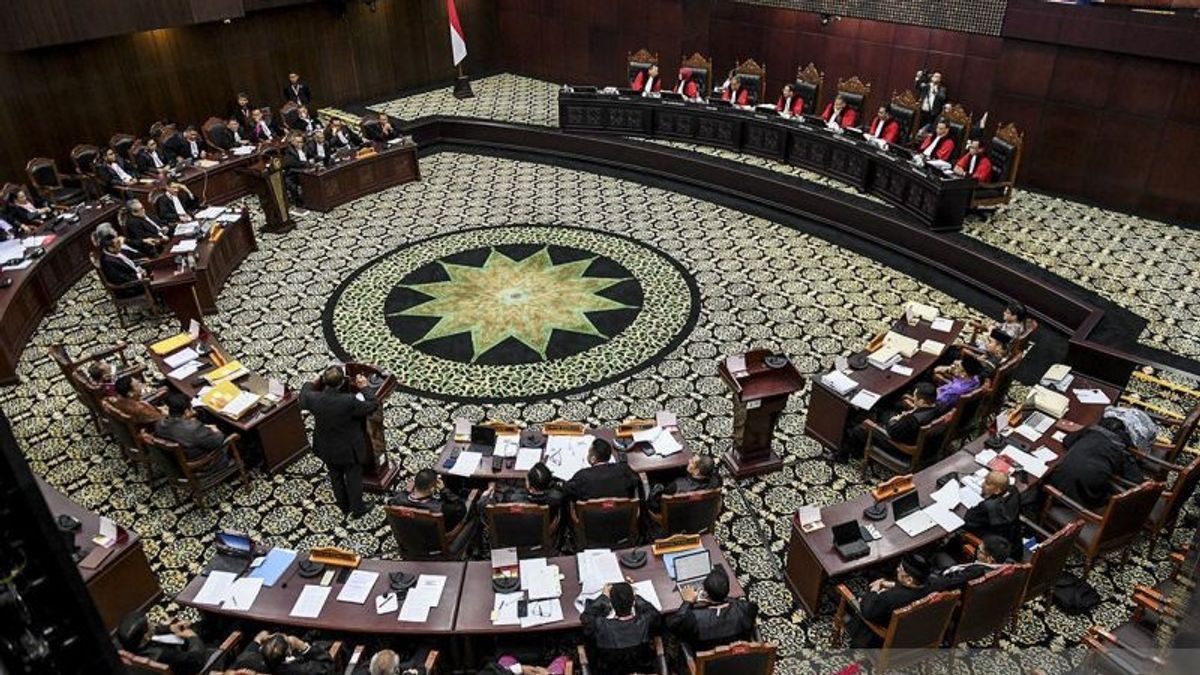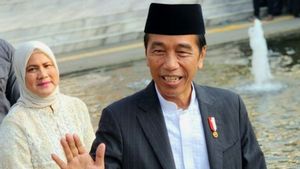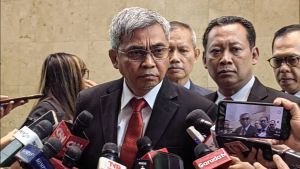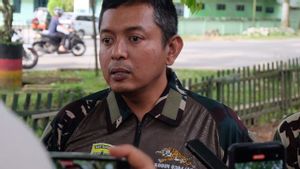The Constitutional Court (MK) explained a number of decisions that became public attention throughout 2024, including judicial reviews related to the threshold for nomination of regional heads and a number of other laws.
This was conveyed by the Chief Justice of the Constitutional Court, Suhartoyo, in a special plenary session held at the Constitutional Court Building, Central Jakarta, Thursday, January 2, 2025.
"In adjudicating the law testing case, there are several decisions that have attracted public attention and influenced the state administration system, the electoral system, democratic principles, and constitutional rights of citizens," said Suhartoyo.
One of the important decisions highlighted was the test of the Pilkada Law which lowered the nomination threshold for regional heads to 6.5% to 10%. The decision is stated in Case Number 60/PUU-XXI/2024.
In addition, Suhartoyo explained the decision related to the parliamentary threshold in the judicial review of the Election Law (Perkara Number 116/PUU-XXI/2023). In this decision, the Constitutional Court stated that the conditional constitutional parliamentary threshold must be enforced in 2029 and the next election, with the provisions of norms and percentages that must be adjusted.
In the Criminal Code's testing, the Constitutional Court also made a breakthrough by stating articles related to the spread of fake news that caused trouble as unconstitutional (kara Number 78/PUU-XXI/2023). Meanwhile, in testing the Terrorism Law, the Constitutional Court decided that compensation for victims of terrorism must be met no later than 10 years (kara Number 103/PUU-XXI/2023).
Decisions related to the Job Creation Law (Ciptaker) are also in the public spotlight. The Constitutional Court decided that the labor cluster must be separated from the Job Creation Law (Cerkara Number 168/PUU-XXI/2023). In addition, the unfunding system in the electricity supply effort is declared to remain unconstitutional (Catcase Number 39/PUU-XXI/2023).
Suhartoyo also highlighted the decision regarding the Copyright Law (Catificate Number 84/PUU-XXI/2023), where the Constitutional Court prohibits digital platforms from allowing the sale or doubling of goods resulting from copyright infringement.
BACA JUGA:
Another decision that is of concern is the judicial review of the KPK Law (Perkara Number 87/PUU-XXI/2023), where the Constitutional Court affirms that the KPK has the authority to handle corruption cases of connectivity as long as it starts by the KPK. In addition, in the testing of the Pilkada Law (Corruption Number 126/PUU-XXI/2024), the Constitutional Court decided that the design of ballots for single candidates in the regional election must include the option of "approving" and "disapproving."
These various decisions reflect the role of the Constitutional Court in maintaining the principles of democracy, constitutional rights, and the legal system in Indonesia.
The English, Chinese, Japanese, Arabic, and French versions are automatically generated by the AI. So there may still be inaccuracies in translating, please always see Indonesian as our main language. (system supported by DigitalSiber.id)
















